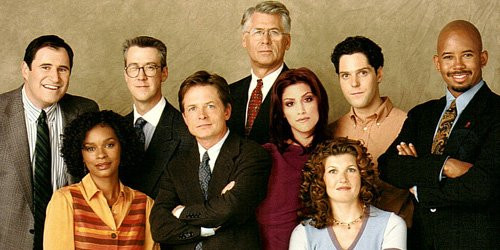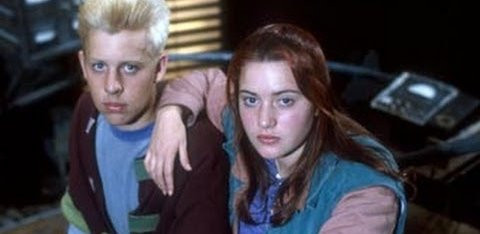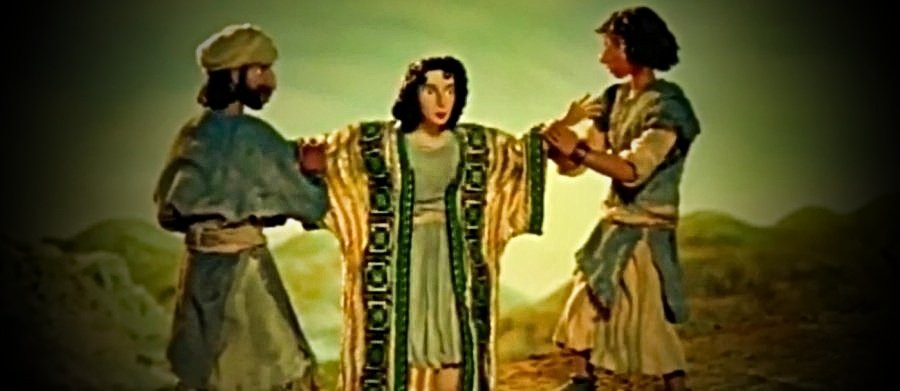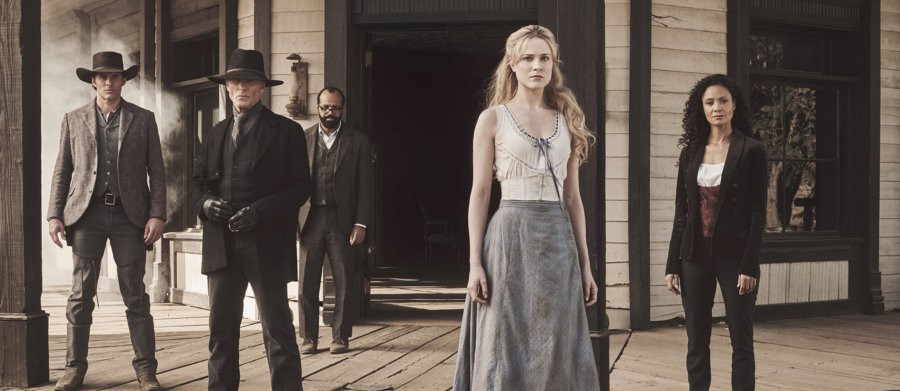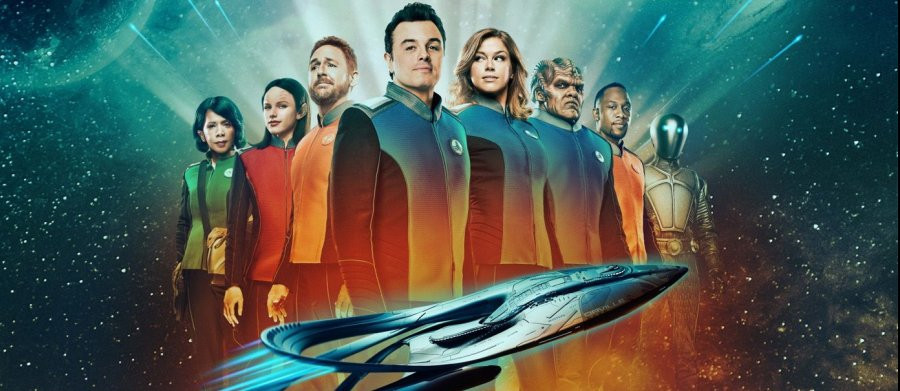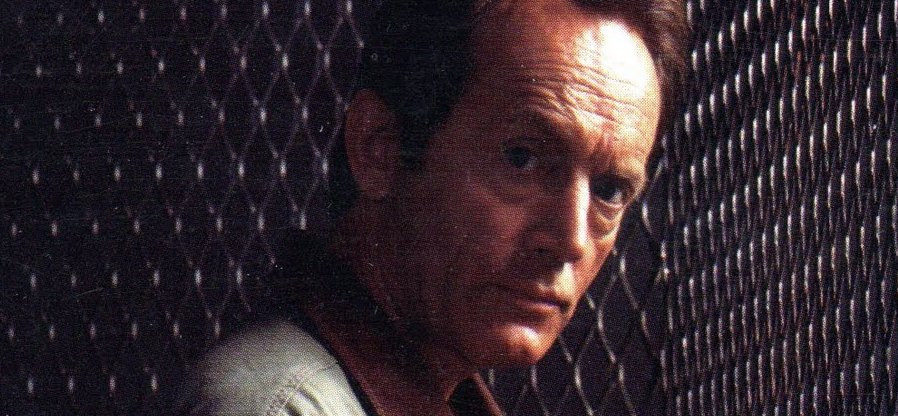
Millennium
1996 - United StatesShortly after The X-Files exploded into a television phenomenon in its second season, FOX approached then-wunderkind creator Chris Carter about the prospect of creating another series, a companion for his original sci-fi/horror outing. Playing on the increasing fascination of the public with the upcoming new millennium, Carter devised Millennium, a dark vision of the impending thousand-year mark combined with what he called "an exploration of evil." While society had developed an increasingly scientific approach to the understanding of evil, its root psychological causes and their manifestations, Carter wanted to rekindle the unscientific perspective—the more superstitious concepts of evil.
Conceived with these core themes in mind, Carter also created Millennium with a specific actor he wanted for the main role. Very early in the conception process, he decided that only legendary character actor Lance Henriksen could properly play the role of Frank Black, the retired FBI profiler whose attempt at a new life in Seattle would soon become embroiled in a battle against the darkest acts of men. Indeed, Henriksen's portrayal of Frank is the single most captivating element of Millennium, and its three disparate seasons are unified almost exclusively by his consistently gripping performance. Without him, Millennium would likely be remembered with substantially less fondness by genre fans, and its inconsistencies and faults would be much more noticeable.
So as not to undermine the work of the many other talented actors who breathed life into each season, it must be said that all of Millennium's cast played a pivotal role in maintaining its quality. Second only to Henriksen's importance was that of Brittany Tiplady and her portrayal of Frank's daughter, Jordan Black. Beginning at the age of five in Season One, Tiplady consistently provided a foil to the disturbing and violent imagery of 'Millennium.' She was a reminder of the world Frank Black sought to protect—a better world devoid of the evil and madness he encountered regularly. Tiplady, who won a Young Artist Award in the show's first season, was responsible for some of Millennium's most moving and heart-wrenching moments. Rarely has there been such a beautifully portrayed father-daughter relationship in television or film as that between Frank and Jordan.
Completing Frank's familial trifecta was his "rock," Catherine Black, played by Megan Gallagher. Though always a presence in some form, Catherine's character never seemed to find a place in the framework of the show. Her few centric episodes are not fan favourites and she occasionally hovers too close to the cliché of "doting wife." Still, like Jordan, Catherine is the reason Frank does what he does, and she kept him from lapsing into insanity on more than one occasion. Gallagher herself brought elegance to the role and shifted comfortably through her character's many permutations.
With the contributions of so many talented artists and performers behind it, Millennium gave a commanding premiere performance to a record audience of 17 million, the most to ever tune in to a FOX program to that date. The stunning numbers were due to a massive advertising blitz and the household name of Chris Carter, as well as the foreboding yet tantalizing "PARENTAL DISCRETION ADVISED" warnings that accompanied every commercial. Before long, however, the ratings began to slide slowly as the first season marched on. While Millennium fans will testify that this had nothing to do with the consistently high quality of each instalment, any number of other factors have been attributed to the loss of viewership.
First, Millennium was indubitably the most graphically violent programme ever devised for television to date, which would naturally alienate a number of viewers, even fans of the more tepid X-Files. While the core theme of the show—that the efforts of good people can overcome the despicable darkness of human nature in our increasingly violent times—remained hopeful, many were unable to see beyond the frequent depictions of blood, murder and corpses. Millennium's failure to establish an ongoing mythology for much of Season One is another criticism, one that even hardcore fans will usually concede as a weakness of the early episodes. This stood in contrast to The X-Files, which was already deeply rooted in an ongoing mythology that helped nurture a devoted following of fans. To casual viewers, it was easy to see 'Millennium' as episodic, "serial-killer-of-the-week" fare.

Despite these factors, Season One stands as one of the most exceptional pieces of entertainment created for television. Along with a powerhouse performance by Henriksen, co-star Megan Gallagher and supporting actors Terry O'Quinn, Brittany Tiplady, Bill Smitrovich and Stephen James Lang all brought intensity and raw emotion to the riveting suspense and terror that was packed into nearly every episode. Killers with various psychoses preyed upon the innocent and forced Frank back into criminal profiling, tapping his special gift to "see what the killer sees." Plots occasionally affected the Black family themselves, such as when Frank's sister-in-law was kidnapped in "Sacrament." The season ended in the stunning cliffhanger "Paper Dove," when Frank's own wife Catherine disappeared in an airport.
Early episodes established The Millennium Group as police consultants patterned after the real-life Academy Group, a collection of ex-law enforcement officers offering their unique services to solve difficult cases. Frank was a relatively new member, and the face of the Millennium Group in Season One was Terry O'Quinn in the role of Peter Watts. Often partnering with Frank and providing crucial resources when needed, Watts was pivotal in establishing the Group's power and influence. Though cloaked in secrecy, the Group showed almost no signs of the sinister intentions that would later become evident.
Though many episodic, procedural shows have endured by sticking with repetitive formulas, Millennium would probably have been better served by an earlier introduction to the larger mythologies that would arrive in force in Season Two. Instead of a more balanced approach, the changeover between seasons feels like a breakneck jerk in a completely new direction. This thematic change came at the direction of Executive Producers Glen Morgan and James Wong, 'X-Files' veterans who took Chris Carter's place in the sophomore season when he turned his attention to the X-Files movie. Their controversial new spin on Millennium represented a vision clearly independent from that of Carter.
Millennium Season Two was all about the Group itself, and Frank's gradual discovery of its darker intentions. Sometimes going weeks between actual serial killer episodes of the type that defined the first season, the story instead focuses on steadily feeding Frank and the audience more and more information about the Group. Evidenced by everything from the iconic Millennium Group computer log-in screen, to Group schisms like the Owls and the Roosters, to passwords and mantras like "This Is Who We Are," it rapidly becomes apparent that the Group is not simply trying to avoid a cataclysm in the year 2000, but believes that they have an active role to play in Armageddon.
If one word were to describe the second season, it would be "uneven." It takes a while to get used to watching what feels at first like an entirely different show, though as mentioned before, Lance Henriksen is the glue that holds it all together. While some episodes are intense and suspenseful, like "Owls," "Roosters," "The Mikado" and "Monster," a few others like "The Curse of Frank Black" are plodding and empty. Furthermore, some concepts are introduced that then fizzle or are dropped altogether. Odessa, the Neo-Nazi organization opposing the Millennium Group, is introduced for two episodes and then never heard from again. Even in Season 3, the demonic force known as Legion never comes into focus, instead becoming sort of a catch-all for any threat that extends into the realm of the supernatural.
Lest one think that Season Two represented a decline in quality, mention must be made of all its memorable contributions to the series as a whole. Lara Means, the woman who, like Frank, has a disturbing "gift," occasionally partners with him, providing an opposing viewpoint and even some sexual tension. The Old Man, an enigmatic figure seen as the long-time "elder statesman" of the Millennium Group, appears a few times to share crucial information with Frank and indicate that the Group's intentions were originally altruistic. Special mention must be made of X-Files crossover character Jose Chung, who appears in the wholly unique and lighthearted episode, "Jose Chung's Doomsday Defense." That and another unique episode, "Somehow Satan Got Behind Me," were penned by fan-favourite writer/director Darin Morgan and stand out among the series' best.
Season Two came to a close with an episode intended to serve as a series finale in the event that Millennium was not renewed for a third instalment. This gave Chris Carter and new Executive Producer Chip Johannessen a hurdle to overcome when Season Three was in fact given a green light. Morgan and Wong effectively wrote the saga of Frank Black into a corner with what appeared to be an apocalyptic virus starting to wipe out the entire planet. With some deft footwork, early Season Three episodes managed to explain away the plague as exaggerated by media hysteria. Still, the effects of Season Two reverberated, with Frank suffering tragic losses in his personal life, and the true nature of the Millennium Group thoroughly exposed.
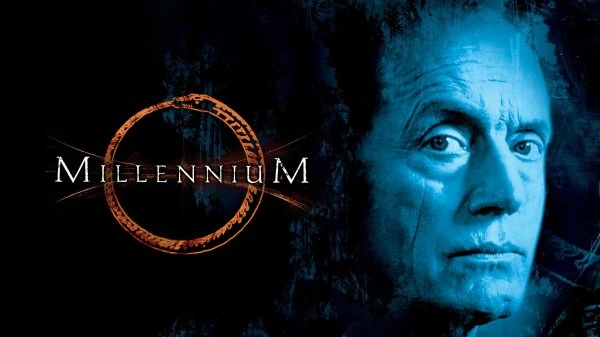
Season Three brought about more drastic change for Millennium, but it was also an amalgamation of the best aspects of Seasons One and Two. Chris Carter returned to helm the series, and steered the show back toward his original vision. Still, he acknowledged the mythological strides made in Season Two and continued to develop them in a subtler way. By relocating Frank to DC and returning him to the ranks of the FBI, Carter ensured that he would have no shortage of killers to pursue. Frank's underlying goal, though, was the pursuit of and destruction of the Millennium Group for whom he blamed his recent miseries.
Aside from the new locale, the biggest change of Season Three was the addition of Klea Scott to the cast, playing Frank's new partner Emma Hollis. Her character's contributions to the show are both positive and negative, amounting to a wash. While a capable and intelligent partner for Frank, she was a new face suddenly thrust upon the audience and it was hard to care much about Emma's personal life compared to that of Frank's. The episodes focusing on her are among the series' worst. Other new supporting characters were more obvious clichés than previous recurring roles, but thankfully some old faces resurfaced on occasion as the season wore on.
Season Three provides many strong episodes and probably falls between Seasons One and Two in terms of overall quality. "Through a Glass, Darkly," introduces a falsely accused child molester, and "Omerta" features two women with mysterious healing powers and a mobster whom they reform with their kindness. One of the series' most gripping episodes, "Borrowed Time," is a supernatural tale in which Jordan's life hangs in the balance, and Brittany Tiplady delivers her strongest performance of the series. In fact, the increased focus on the bond between Frank and Jordan is arguably Season Three's most appealing attribute. Another episode, "Saturn Dreaming of Mercury," focuses squarely on Jordan as well.
Once again, the series' future was unknown as Millennium Season Three drew to a conclusion, so Frank's fate was left open-ended but hopeful. The emotional series finale, "Goodbye to All That," encompassed everything that made the series great from start to finish, featuring the pursuit of a frightening serial killer as well as a deadly encounter with the Millennium Group as they continued to manipulate Frank and his friends to their own ends. Whether unintentionally or not, it served as an appropriate swan song to Millennium's three wildly different seasons and the character who gave the show its soul.
Throughout its turbulent run, Millennium was a collection of flashes of genius as well as sad contemplations of what might have been. Would the show have lasted through the actual millennium if it had been developed with a more even-handed mix of murder and mythology? Would certain decisions have been made had it not been believed that the series was over on more than one occasion? What would have become of such dangling plot threads as Odessa, Legion, and the supernatural killer Lucy Butler? Watching Millennium is like looking at a cracked Grecian vase—despite its incomplete and fractured nature, you can't help but cherish its precious craftsmanship. While you can dream of what it looked like complete and polished, you know you'll never see it that way, so you tell yourself to be thankful to behold the wondrous object you have before you, regardless of its condition. And when you do, you realize that it is still an amazing piece of art.
Seen this show? How do you rate it?
Seen this show? How do you rate it?
Published on January 4th, 2019. Written by Ben Lundy for Television Heaven.


